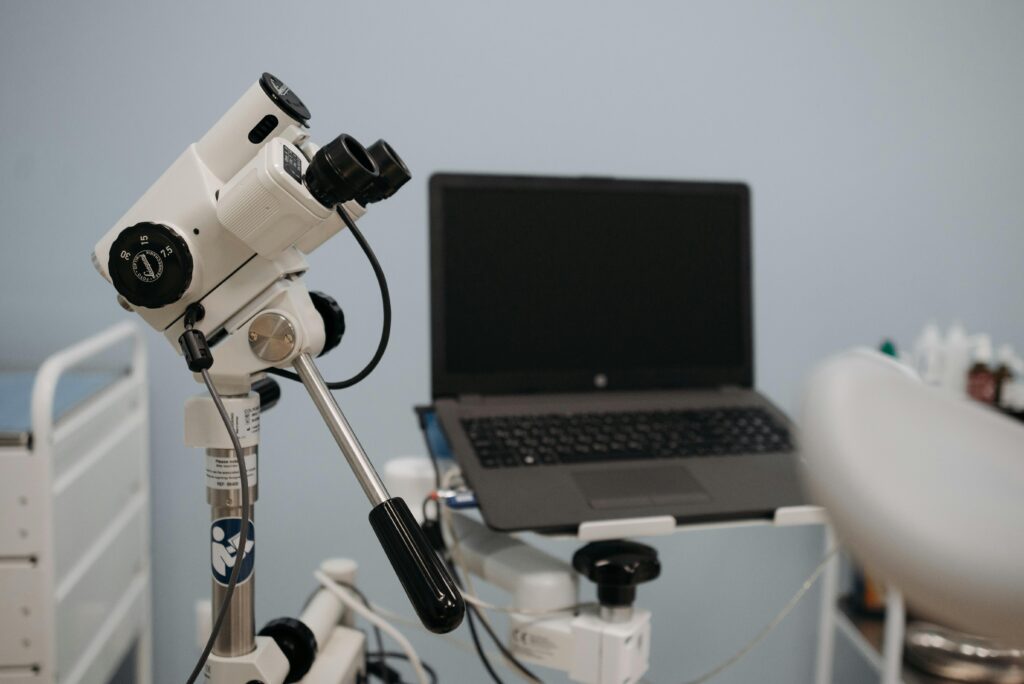As we delve into 2025, Poland’s job market is undergoing rapid transformation across pivotal sectors, including IT, manufacturing and supply chain, medical devices, and finance (particularly within Business Service Centers). This article provides a comprehensive analysis of the latest trends, challenges, and salary dynamics shaping these industries.
IT Sector in Poland: Resilience Amidst Change
Poland’s IT sector continues to thrive and adapt to global challenges, sustaining its growth in high-demand domains such as Data & AI, Cybersecurity, and Cloud Computing.
Poland remains a magnet for foreign investors due to its unique combination of highly skilled professionals and relatively competitive costs compared to the US and Western Europe. Moreover, local businesses are accelerating their digital transformation efforts, increasing the demand for IT specialists capable of leading complex transitions.
New legal regulations, such as the amendment of the National Cyber Security System Act and the implementation of the Single Control File, further compel companies to invest in advanced IT solutions, contributing to sector-wide growth.
Rising Demand for Cybersecurity and Machine Learning Experts in Poland
Generative AI and machine learning are reshaping the market, driving the need for specialists who can integrate these technologies across areas like business, healthcare, and logistics. Machine Learning Engineers have experienced salary growth of up to 14% year-over-year.
The persistent rise in cyber threats, coupled with stricter regulations, places cybersecurity experts in high demand. According to the Polish Chamber of Information Technology and Telecommunications (PIIT), the country faces a shortage of around 50,000 IT professionals, of which nearly 20% are cybersecurity specialists (Bankier.pl).
While demand for generalist developer roles has declined, niche expertise in data engineering, DevOps, and cloud architecture remains highly sought after.

IT Salaries in Poland 2025
Although salary growth has slowed compared to previous years, professionals in key IT roles still enjoy annual increases exceeding 10%, with average inflationary adjustments of 5–7%. These factors underscore the sector’s resilience and its attractiveness to job seekers.
Manufacturing & Supply Chain in Poland: Automation and ESG Take Center Stage
The manufacturing sector in Poland is undergoing significant shifts, driven by automation, robotics, and sustainability (ESG) initiatives. Automation is revolutionizing the industry, with rising demand for roles like automation engineers, process optimization specialists, and lean managers. Companies are focusing on efficiency and ESG priorities rather than simply increasing headcount.
Geopolitical factors have exposed vulnerabilities in supply chains, pushing businesses to diversify suppliers and invest in logistics expertise to mitigate risk. But Poland’s manufacturing priorities vary by region:
In Northern Poland (Gdańsk): Growth is fueled by investments in energy, consumer goods, and offshore industries, although challenges remain in sectors like automotive.
In Lower Silesia (Wrocław): A hub for Industry 4.0, with high demand for mechatronics engineers and system integration specialists.
Central Poland (Warsaw): Employers increasingly combine technical skills with leadership capabilities to meet evolving business needs.
2025 Salaries in Manufacturing in Poland
Technical roles see steady salary growth across regions, with sustainability-focused roles gaining prominence. Companies are also incorporating ESG initiatives into their hiring strategies, reflecting global sustainability goals.
Job market in Polish Manufacturing sector is highly competitive and situation of each production plant is highly dependent on the local market specifics.
Medical Devices: Talent Shortages Fuel Wage Growth in Poland

The medical devices sector in Poland is experiencing dynamic changes, largely driven by increasing demand for skilled professionals. Technical roles, such as service engineers, have seen salaries increase by as much as 20%, while Quality Assurance experts have noted a rise of up to 10%.
Wages in non-technical roles remain stable, with inflationary adjustments typically between 5–7%. However, the ongoing talent shortage continues to drive competition among employers, resulting in higher salaries for specialized positions.
Successful employers are also prioritizing work-life balance and hybrid work models to meet evolving employee expectations.
Finance & Accounting in Poland: Evolving Roles in Business Services
Poland’s finance sector, particularly in Shared Services Centers (SSC) and Business Process Outsourcing (BPO), is on an upward trajectory, fueled by the adoption of AI-driven tools and ERP systems.
The evolving landscape emphasizes hybrid skillsets combining financial acumen with technological proficiency. There is a growing demand for professionals who not only understand financial mechanisms, but are also able to use modern technological tools. However, this change does not mean that people are completely replaced by machines – analytical competence, critical thinking and the ability to make strategic decisions remain key.
Here are the most sought after specialized finance roles in Poland in 2025 according to Devire’s experts:
Financial Planning & Analysis (FP&A) Analysts: Strategic decision-makers leveraging data insights.
Business & Financial Controllers: Experts focused on cost management amid economic uncertainties.
Data Analysts (Finance & Accounting focused): Specialists in financial automation, data modelling and advanced reporting.
Besides that, companies are looking for Compliance & Risk Specialists as well as Accountants experienced with ERP tools & process automation.
As companies adopt more transparent salary practices to attract top-tier talent, pay equity is becoming a key focus area. Professionals with hybrid skill sets enjoy accelerated career growth and competitive compensation.
Opportunities and Challenges in Poland’s Job Market and Salaries in 2025
Poland’s job market in 2025 is a dynamic mix of opportunities and challenges. From the IT sector’s resilience to manufacturing’s focus on automation and sustainability, to the medical device industry’s rising wages and the finance sector’s hybrid roles, employers must remain agile and proactive.
To stay competitive, businesses should invest in cutting-edge technologies, foster employee development, embrace flexible work arrangements, and prioritize ESG initiatives. Comprehensive resources like Devire’s Salary Report 2025 Poland offer valuable insights to help companies navigate this evolving landscape effectively.
Seeking reliable recruitment company in Poland? At Devire we helped 600+ clients last year to find and recruit more than a 1000 people. Fill out the form, we’ll call you back.

